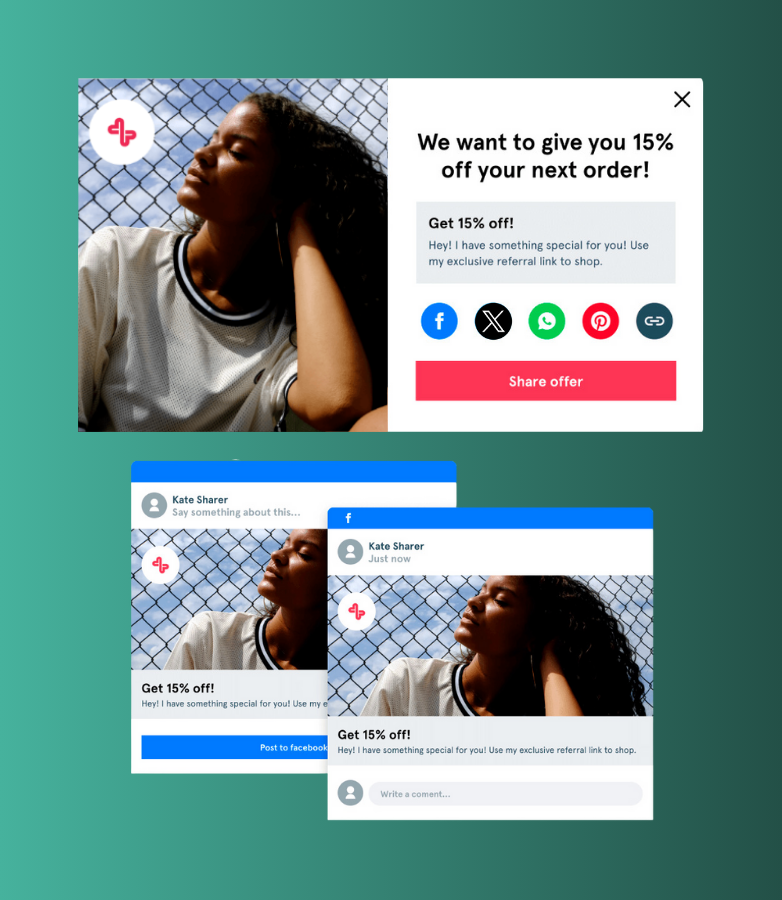Every successful referral starts with a thought- a small, fleeting decision between “I like this brand” and “I’m going to share it.” That mental gap often lasts just a few seconds, but it’s in that micro-moment where advocacy is born.
At Soreto, we’ve seen how brands can influence this split-second choice through design, timing, and emotion. Because while referral programmes rely on technology, the true driver of sharing is human psychology.
The Moment Before the Share
When someone completes a purchase or engages with a brand, a brief cognitive process takes place. Psychologists call this a “micro-decision moment”, the brain’s way of weighing whether something is worth endorsing to others.
In those few seconds, three things happen:
- Emotional validation– The customer feels good about their decision and experiences a burst of satisfaction or pride.
- Social evaluation– The brain asks, “Would this make me look good if I shared it?”
- Effort calculation– The customer quickly judges how easy or awkward sharing will be.
If those three reactions align- positive emotion, social approval, and low friction- the referral happens. If even one feels off, the moment passes and advocacy is lost.
Emotion Drives Action
Referrals don’t happen because of logic; they happen because of emotion. That first rush after a purchase or a great experience is when satisfaction peaks. According to behavioural research, humans are five times more likely to share something that evokes strong positive emotion; excitement, pride, or delight, than something merely functional.
This is why when and how brands ask for referrals matters. A post-purchase prompt that appears while emotion is high can capture that energy instantly. Waiting days or weeks allows enthusiasm to fade, and with it, the impulse to share.
The Social Filter
The second step happens subconsciously: a social check. People think about how sharing reflects on them. It’s not vanity, it’s reputation management. A recommendation is a reflection of the referrer’s own taste, judgement, and trustworthiness.
This is why trust is so critical in Referral Marketing. Customers are not just promoting your brand; they are putting their name behind it. If they feel proud to be associated with you, they’ll share freely. If they feel uncertain or exposed, they’ll hesitate.
Brands that cultivate identity-driven loyalty, where customers feel part of a shared story or purpose, turn this social filter into a natural amplifier. Advocacy becomes a form of self-expression, not a transaction.
Effort and Ease
Finally, the brain calculates effort. “How much work will this take?” In the age of instant gratification, the answer has to be almost none. Even when intent is high, friction kills momentum.
That’s why Soreto’s platform is designed to make sharing effortless. With one click, customers can share via WhatsApp, Instagram, Facebook, TikTok, Snapchat, or Copy-Link, depending on their preference. There’s no login barrier, no lengthy form, no waiting. The simpler the action, the stronger the response.
Ease also matters emotionally, when something feels intuitive, the brain interprets it as “right.” In those three seconds, simplicity wins every time.
Turning Micro-Decisions Into Momentum
Understanding these micro-moments is the key to turning customer satisfaction into advocacy. It’s about designing referral journeys that align with human behaviour:
- Trigger the ask when emotion peaks.
- Reinforce social value by making your brand feel aspirational.
- Remove friction so sharing feels instinctive.
When brands combine these psychological cues, referrals no longer feel like an extra step, they feel like a natural reaction.
The Science Behind the Share
Neuroscientists describe sharing behaviour as a dopamine-driven response. When someone shares something that reflects well on them, the brain releases dopamine- the same reward chemical linked to pleasure and motivation. That’s why sharing feels satisfying. It’s also why referrers who engage once are more likely to do it again: the action literally feels good.
The takeaway? Advocacy isn’t just marketing. It’s behaviour. And when brands understand that, they can engineer environments where those micro-moments multiply.
Final Thought
Every referral begins with a spark, that three-second moment between enjoyment and action. Brands that learn to capture it win not just sales, but emotional loyalty.
At Soreto, we help brands design referral experiences that speak to both the head and the heart, transforming those fleeting seconds of satisfaction into sustainable advocacy.
Ready to turn happy customers into habitual sharers? Book a demo with Soreto here.







